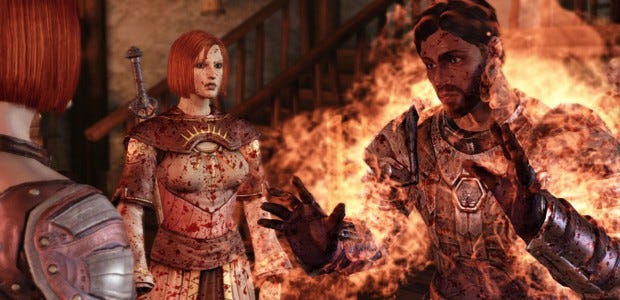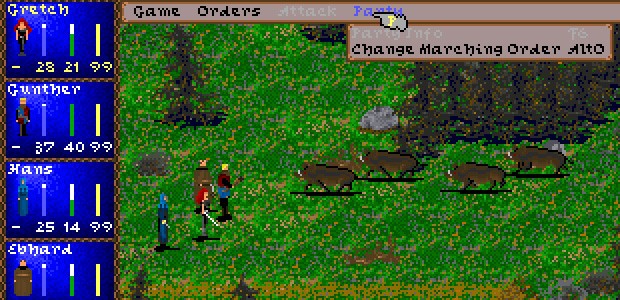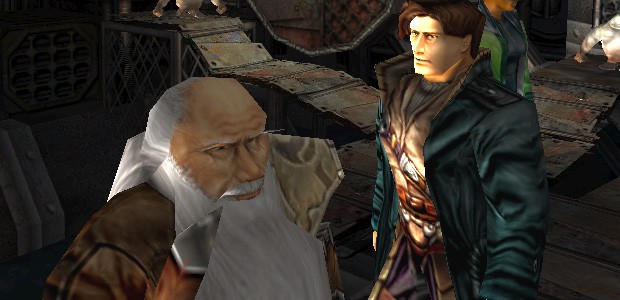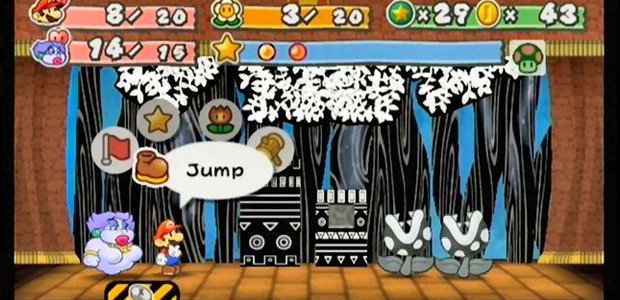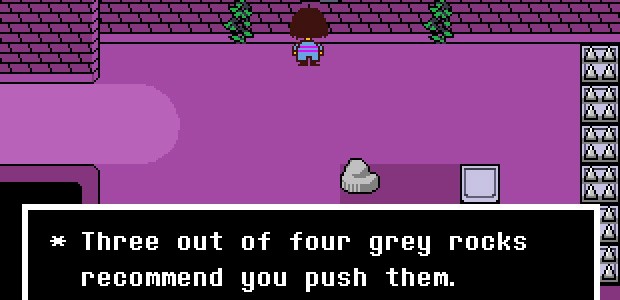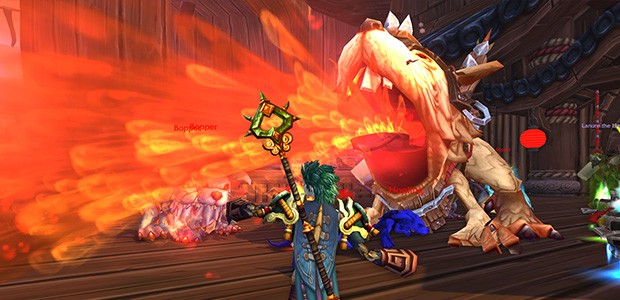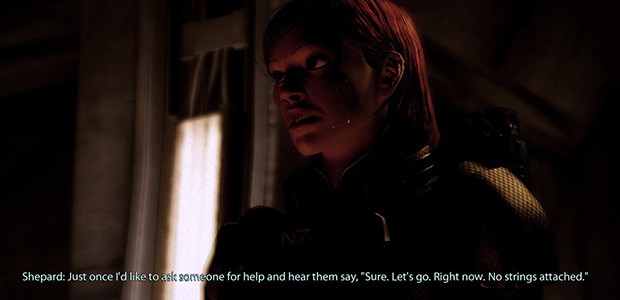The RPG Scrollbars: Just Go Along With It, Okay?
Hanging lampshades and suspending disbelief
Spoiler alert, RPGs are kinda ridiculous. Most games are, of course. While the Mythbusters may have shown that carrying Doomguy's loadout into battle isn't as bad as it might sound, there's a reason they've never done a follow-up about doing it after taking a few rockets to the face. Likewise, we can't know the effect of glugging down fifty health potions a day, but it must mean a lot of pauses for the heroic knight to hurriedly get his armour off for a quick pee-break.
Like a lot of things, there's a line here - on one side, things that are interesting to see a game justify, and on the other, things that are probably best handwaved. Where does that line lie?
For example, more realistic RPGs like Darklands are probably better off not trying to keep things realistic to the point that the entire party is struck down with diabetes and liver failure after abusing potions, even though in 'reality' there's a reason why the only thing separating medicine from poison is dosage. Health potions are also the bane of story/gameplay segregation, with one of my favourite 'doh' moments being the first Vampire: The Masquerade game, Redemption. Your hero has been wounded and spends months and months being slowly nursed back to health by the compassionate nurse Anezka... only to find out there's a potion shop just a couple of doors away.
I do like it when games at least consider the details though, especially where other characters are concerned. Knights of the Old Republic II and Planescape Torment for instance are two of the few that offer a justification for why some of the toughest people in the universe have decided to drop what they were doing and go slay and murder on behalf of some passing antihero - the Exile's subconscious Force Bond in KOTOR 2, and The Nameless One's mix of drawing souls in torment and unfinished business with party members who just don't fill him in on specifically why they wanted to join until later in the game. Less mystically, the whole point of Mass Effect 2 is that it's a recruitment drive where you're offering people a job, so while it's arguable that you don't need half as many rogues and miscreants taking up space on your ship as you end up with, especially with all the DLC, it's at least easier to treat it both as a win and just assume that details like pay and whatever are being dealt with behind the scenes. The joy of having a very rich patron backing the journey.
When it goes wrong though, it can really go wrong. I remember the painful thunk early in Mafia 2 for instance, which specifically calls out main character Vito's resilience with "You've always been a quick healer - must be your diet or something," in a way that only draws attention to something that was better handwaved. Anachronox too aimed to be cute with its TACOs, and yes, it's vaguely fitting for a game that already has its tongue planted firmly in its cheeck to be full of Totally Arbitrary Collectible Objects, but down that path goes most bad game parody - joking about how crap something is, and then straight-up doing the crap thing instead of the trickier task of finding some way to subvert it. One that I've always wanted to see for instance is to find a temple whose priests say "You will need the seven rainbow gems to open the portal... luckily, we had a bit of time over the last few decades, so we went out and found them ourselves. You're welcome. We also learned to make really good chocolate cake."
The best explanations though are the ones that don't simply acknowledge a potential issue, but make something of it. If I occasionally get cross with games for not doing this, it's because... look, it's one thing to be beaten by Ultima (take a shot) or Baldur's Gate or World of Warcraft or something, but there is no excuse to fall before the narrative might of Paper Mario 2: The Thousand Year Door. Yet so many games do. Pretty much every game in fact that asks you to collect a weapon or a key or whatever that's been inconveniently broken into pieces and that both you and the baddies want. If you're doing that plot, I insist on a good reason why I as the hero can't just throw the first part into a wood chipper and wander off, content in the knowledge that the villain is foiled and we won't have one of those embarrassing scenes where I finally reassemble the damn thing only for Lord Darkness to sweep in and pinch it.
What did Paper Mario 2 do? It has a character outright suggest this - or at least, not bothering to go and get the rest of the magic crystals that will free a dark, world-shattering force from its prison. It's not a long explanation, but it doesn't have to be. It just clarifies that yes, that would work, however the monster is growing in power all the time and will eventually burst out on its own. At that point it'll be too tough to have a chance of defeating, so we need to go do it now while it's still weak enough. Great! One line, problem solved, and hundreds of other RPGs looking uncomfortably at their feet. Admittedly, I'd still probably have chosen to bury one of the crystals until needed at the end of the game rather than walking around with the whole lot of them, but... look, I'll take it, okay! At least a little thought went into it making sense, and that in a series whose main character communicates his thoughts by jumping.
The current King of all this is of course Undertale, a game I love very much and don't care if you don't. As with much of its genius, it doesn't really come through on the first playthrough when you're still picking up all of the details. Going back though, it's wonderful to see how well thought out it all is, and how subtle - that opening boss Toriel doesn't want to hurt you, so when your health gets low, she switches to a bullet pattern that can't hit you (though it is possible to die, it's by accident, and she has a special shocked face for if it does), or that skeleton guard Papyrus, whose job is to capture instead of kill you, will actually do that - lose his fight and you wake up in his doghouse because he doesn't really know what he's doing. It also works on its own definitions of terms like Lv. and EXP - Level of Violence and Execution Points, described as "A way of measuring someone's capacity to hurt."
Which got me thinking a little about some of the personal canon that I tend to use in RPGs - in particular, often treating what's happening on stage as being somewhat metaphorical, rather than a literal, hit-by-hit fight. Take Final Fantasy VII for instance. Officially, I'm sure that we're meant to take the summon attacks and other flashier routines on pure face value, even when it involves a dragon destroying the entire universe and only scratching your opponent's armour. Or World of Warcraft, where a single boar on one new continent could single-handedly crush everything that came before about as easily as the headline threats like Deathwing and the Burning Legion. (World of Warcraft: Hogger's Revenge, coming in 2018! Probably!)
In my head, I like to rework this a bit, so that it's not that the new enemies are really those exponential levels of power greater than what's come before, but that something like an angry boar is always going to be a threat to any adventurer, even a skilled one. Why doesn't that apply in reverse when going to older zones? Shut up, that's why. At least in World of Warcraft, though more recent games like Guild Wars 2 have codified it by applying max levels to areas instead of letting you bring your full force wherever you want.
This might seem unnecessary for enjoying the action, and yes, it is. But it makes it easier for me to accept and let this kind of thing go, and it's not like the rest of the game doesn't ask for similar leaps. Most bosses for instance aren't really ten feet high. They're blown up because trying to see and target a regular human sized figure in a 5-25 man crush would be a pain in the neck, arse and that twiddly bit between the big and next toe. We're also expected to pretend that we're the first ones to ever fight them, and that the fight going bad will lead to dire consequences for the world, instead of just an angry tank shouting "learn to play, noob!" It's the unspoken covenant, that as long as Blizzard doesn't push its luck, we give a pass to the stuff we know is a little silly or has to be out of step with the mechanics. Not every boss kill can be Kerafym the Sleeper, the Everquest boss with a zillion hitpoints who could only be fought once per server and whose death was meant to usher in Everquest 2 and a new age for mankind.
Do you have any mental house-rules that you tend to apply to RPGs? A few spare lamp-shades on standby for when something doesn't make sense, or just an alternate way of thinking about things like character power and death? I know there's a contingent of Final Fantasy fans for instance who get very cross if you ask why Cloud didn't just give Aerith a Phoenix Down, as if taking a blade to the chest is somehow worse than taking a Doomtrain or whatever to the absolutely literally everything.
Or on the flip-side, has a game ever done anything to either truly break you out of the experience with some small mistake, or won you back with an absolutely perfect justification? I know I can think of a few that I'm eagerly waiting for, like a shop at the end of the game whose owner stocks you up for free because of the incoming apocalypse... but if I can't have that, I'll at least take one who cheekily comments "I'm just that confident in your success!" A little acknowledgement. A wink from the designer. Doesn't seem too much to ask for politely blanking so much more.
